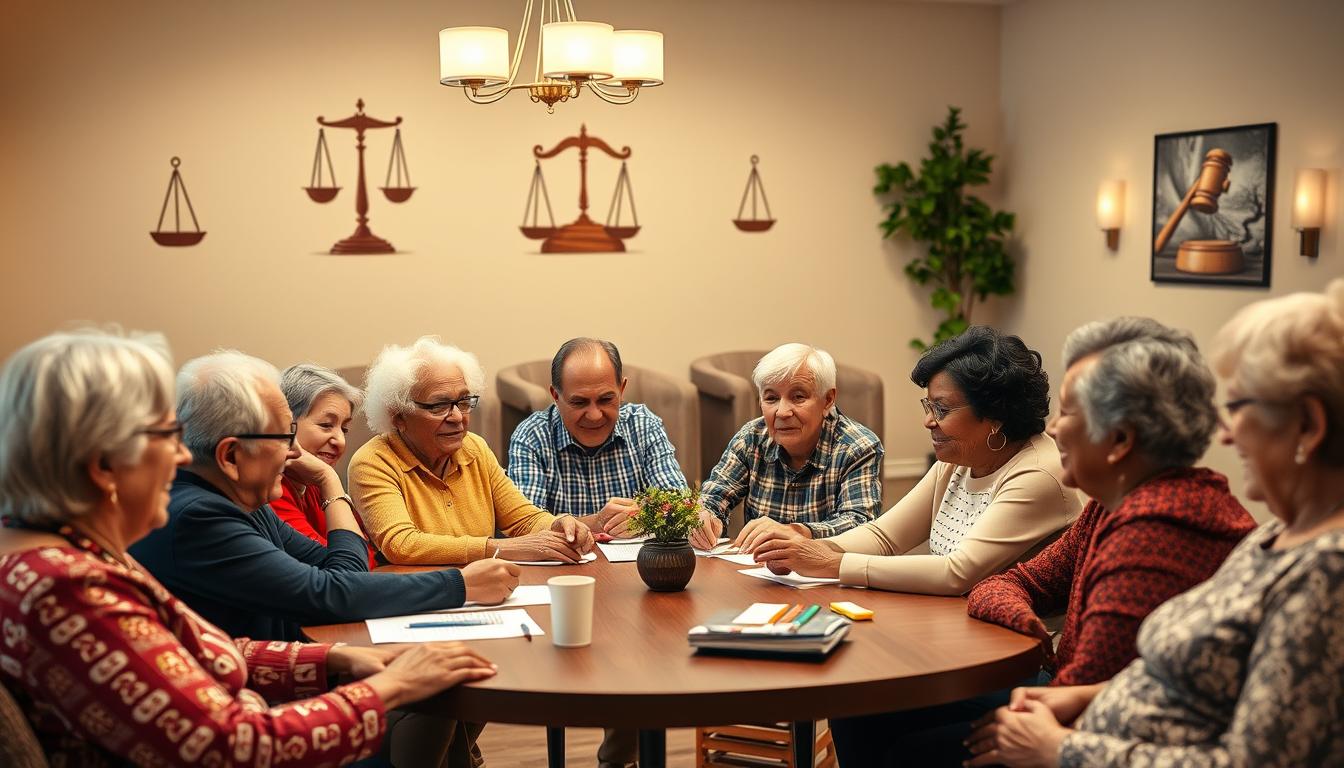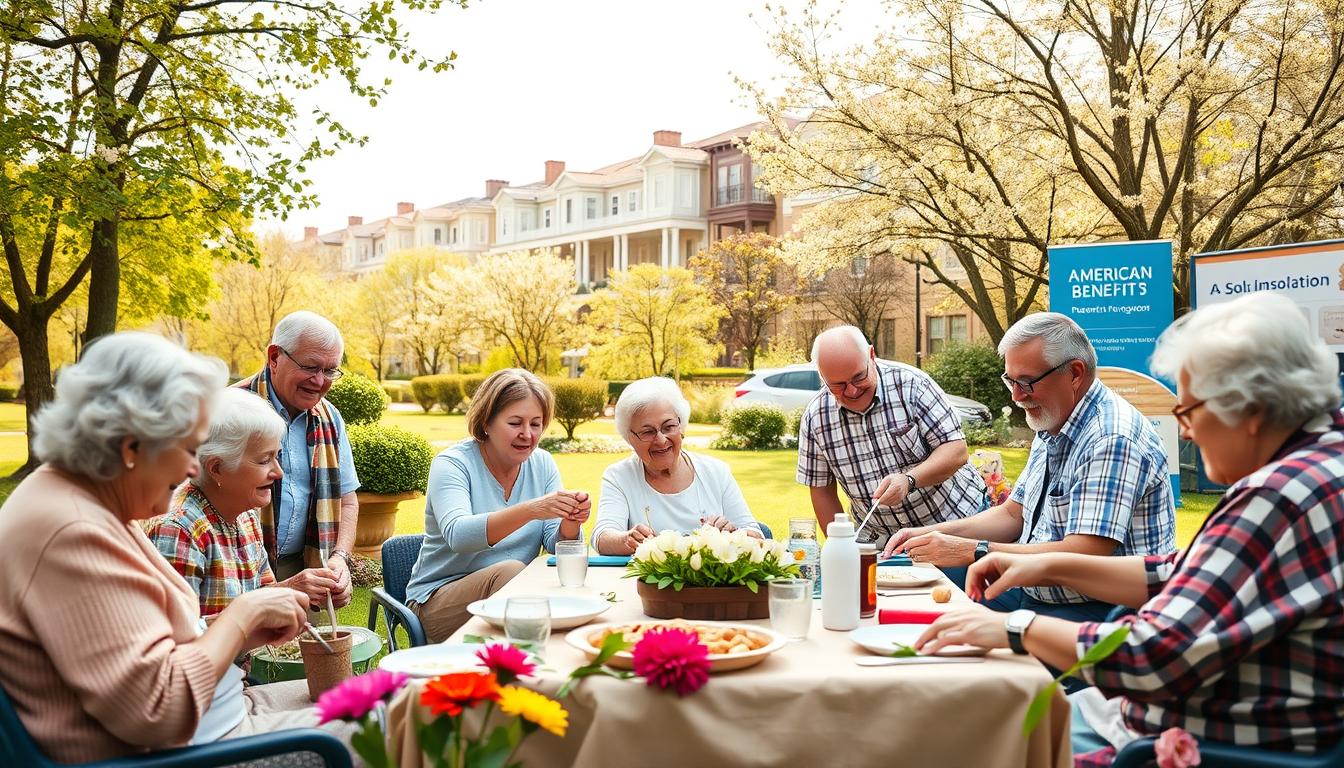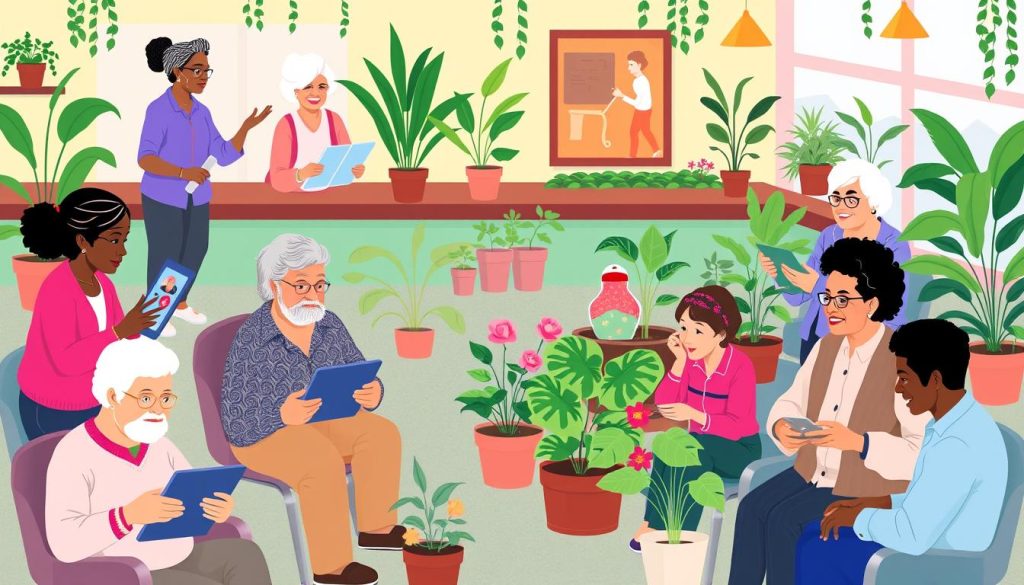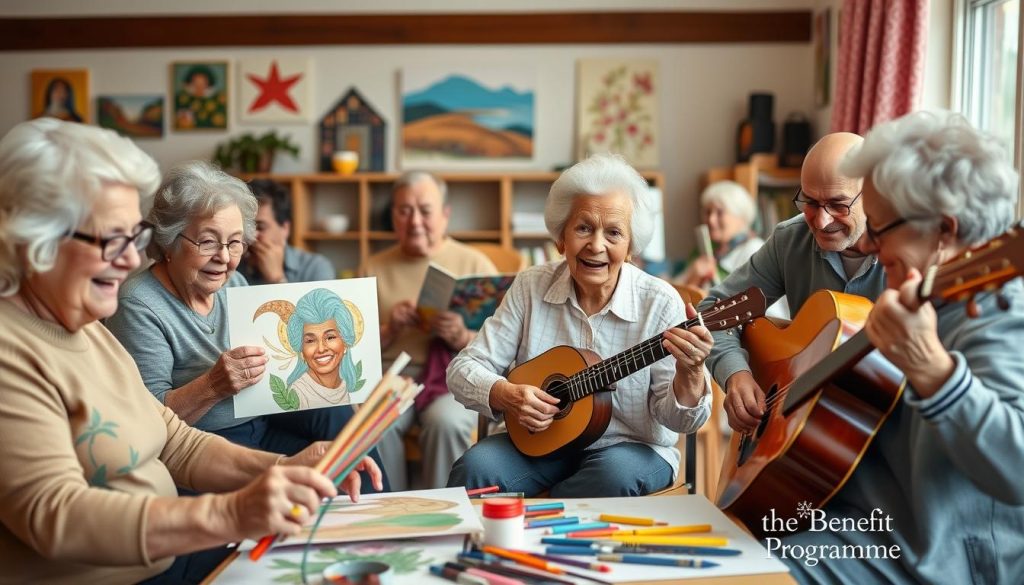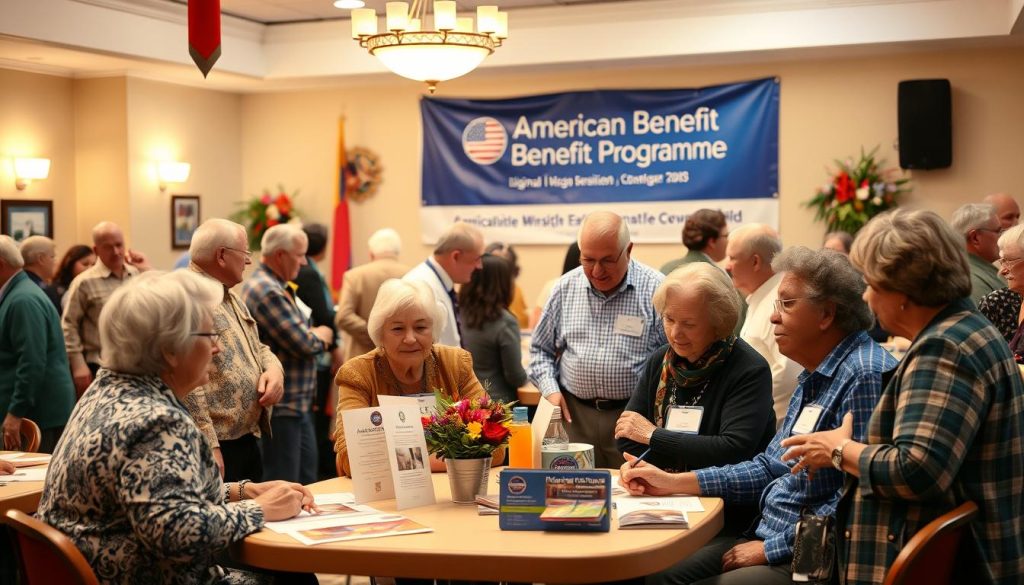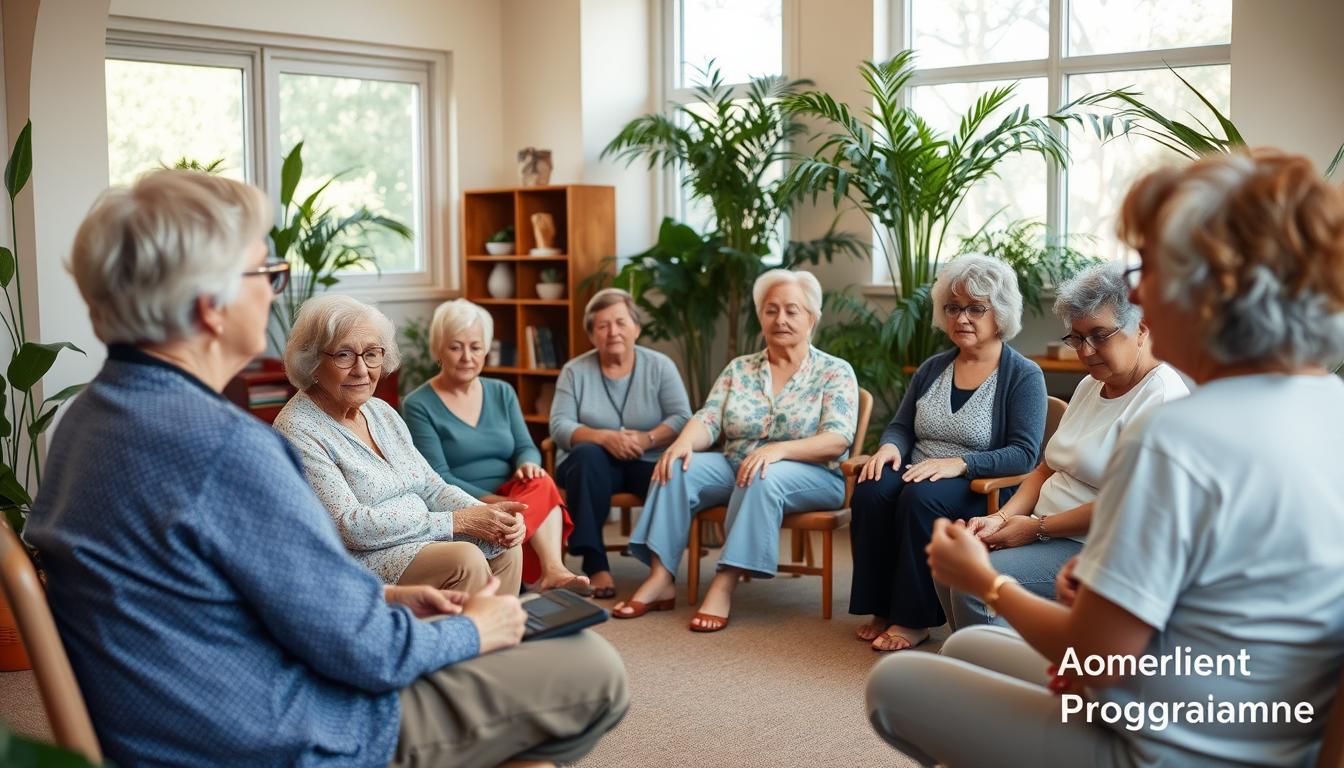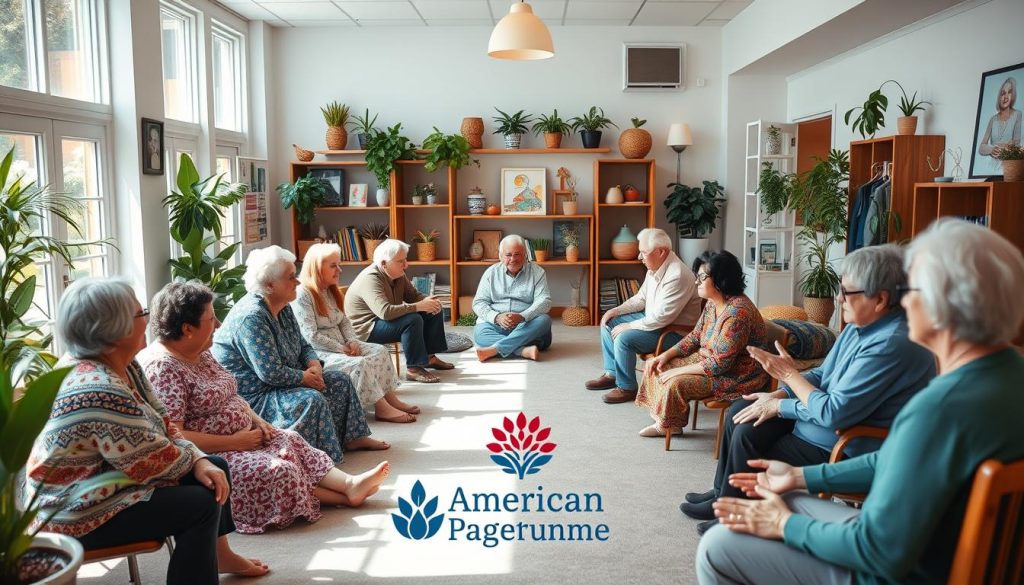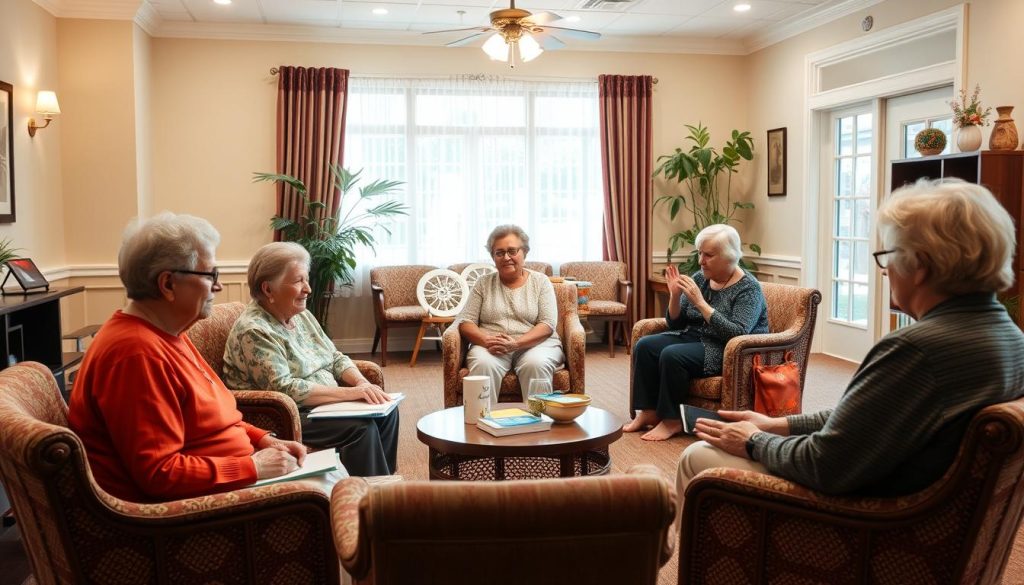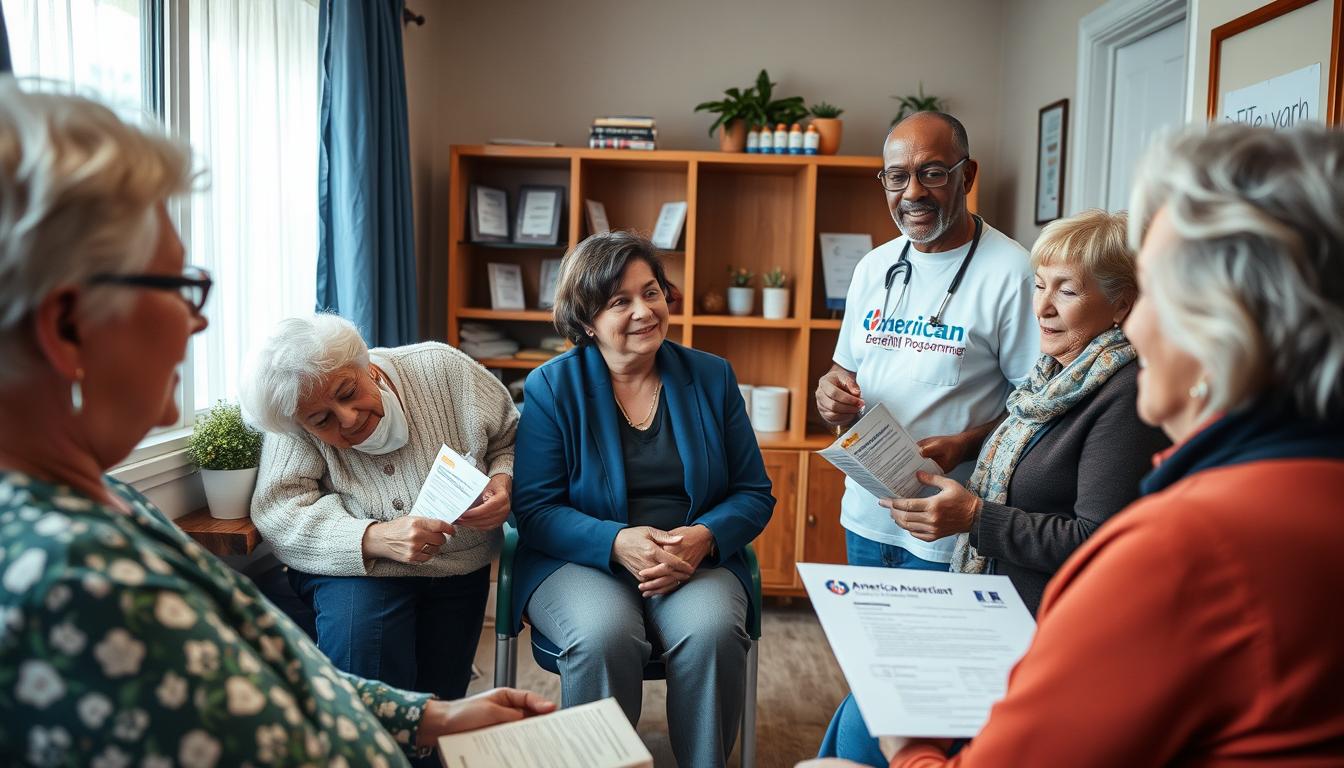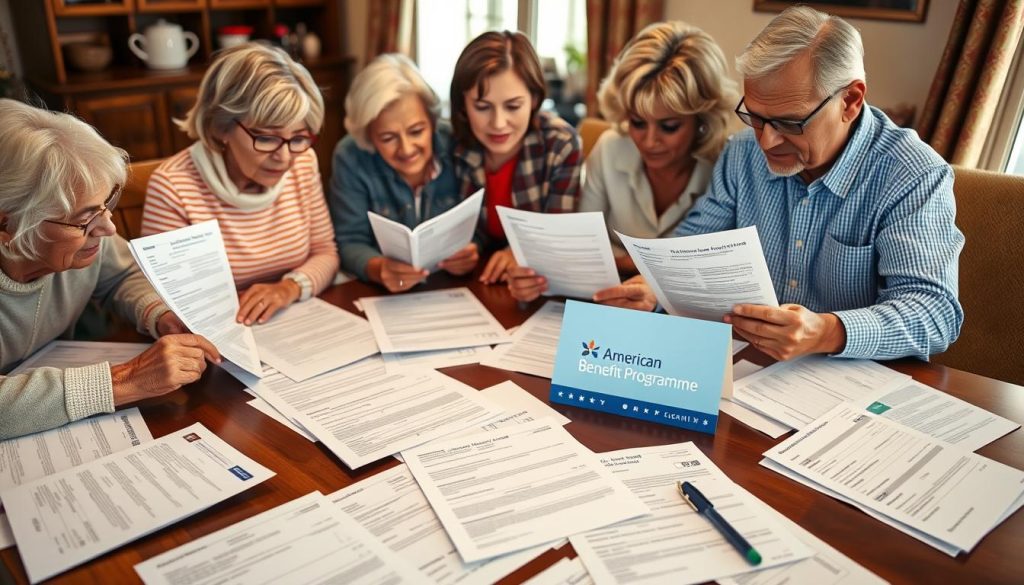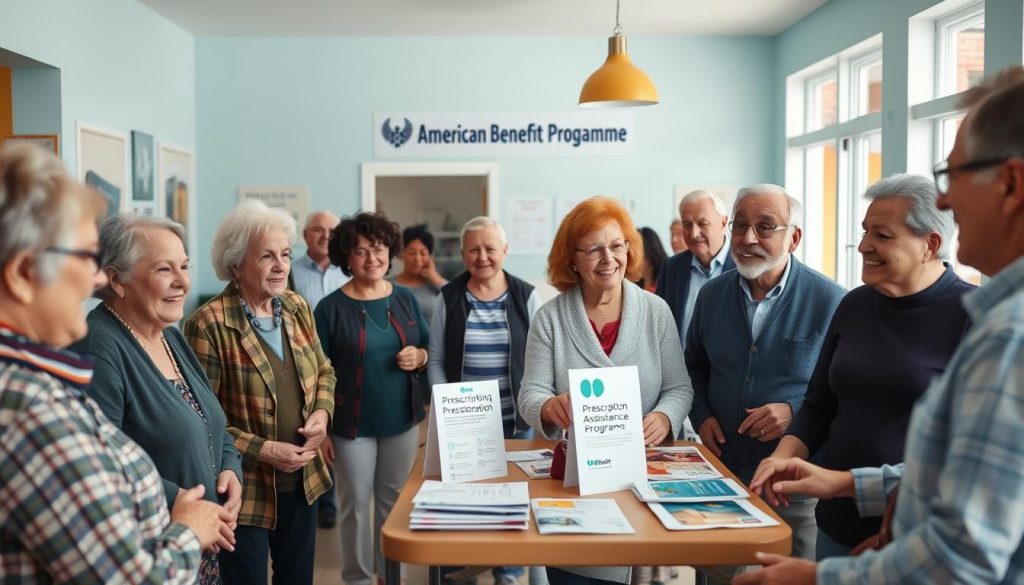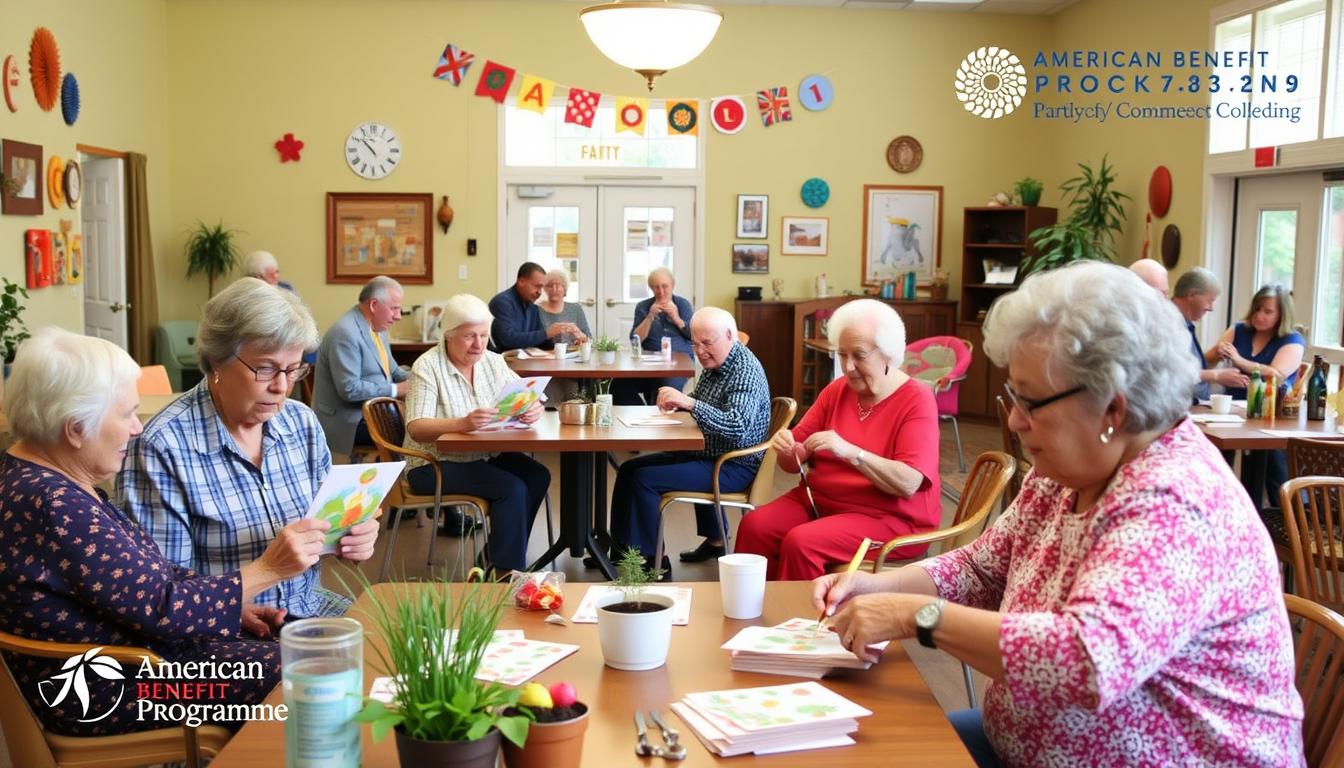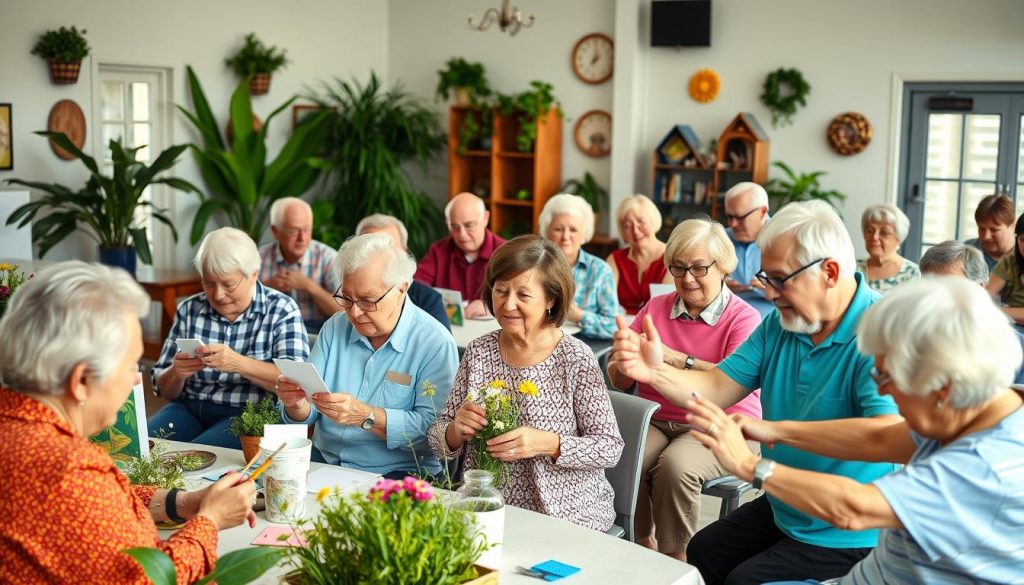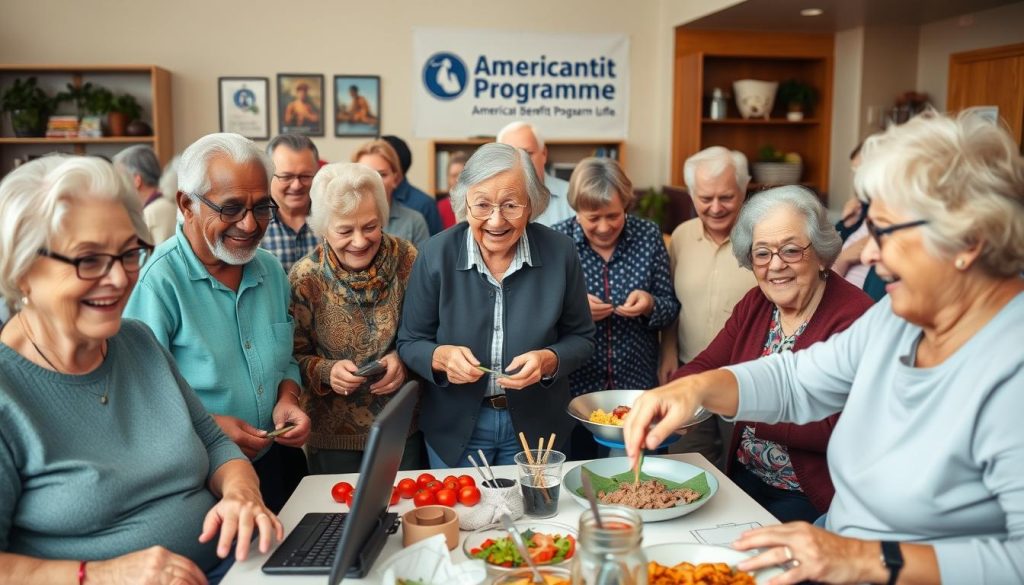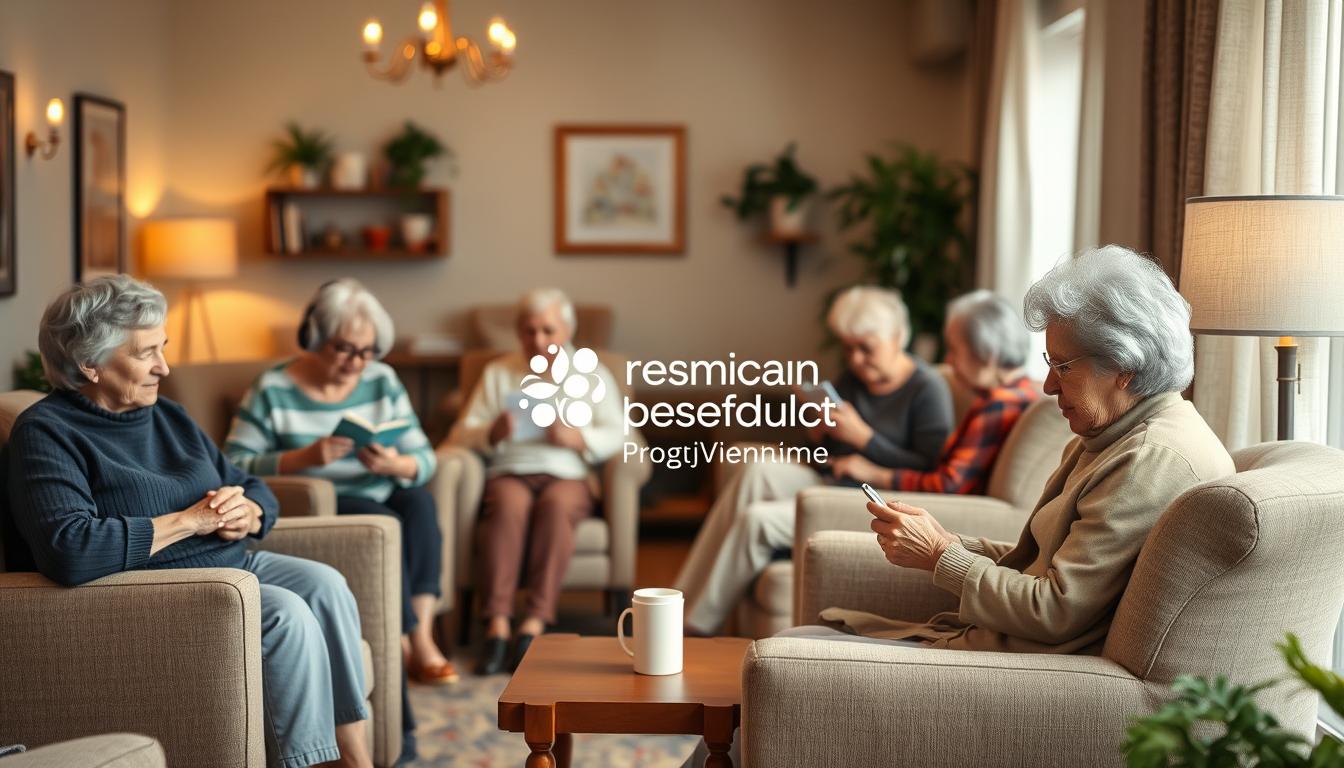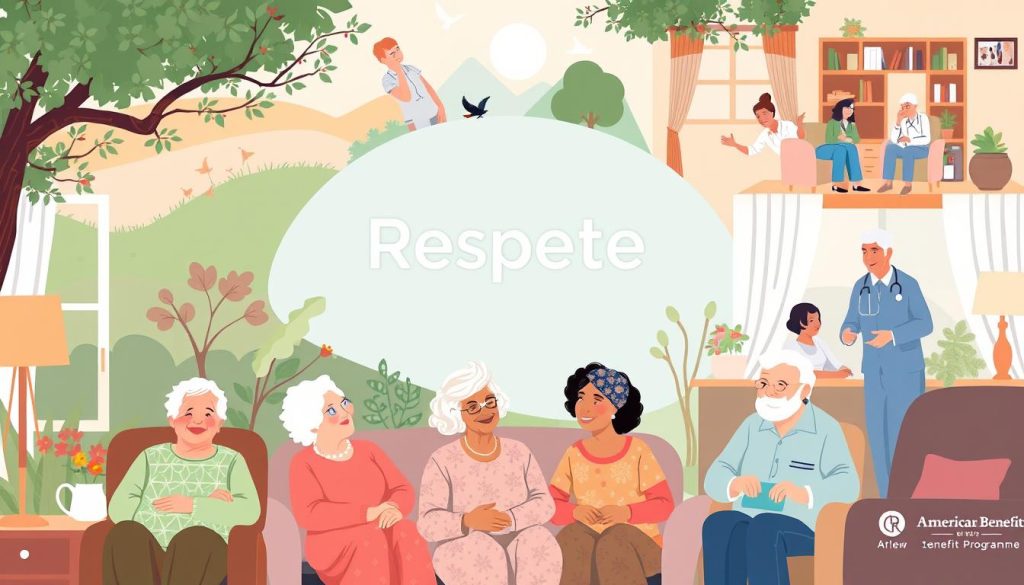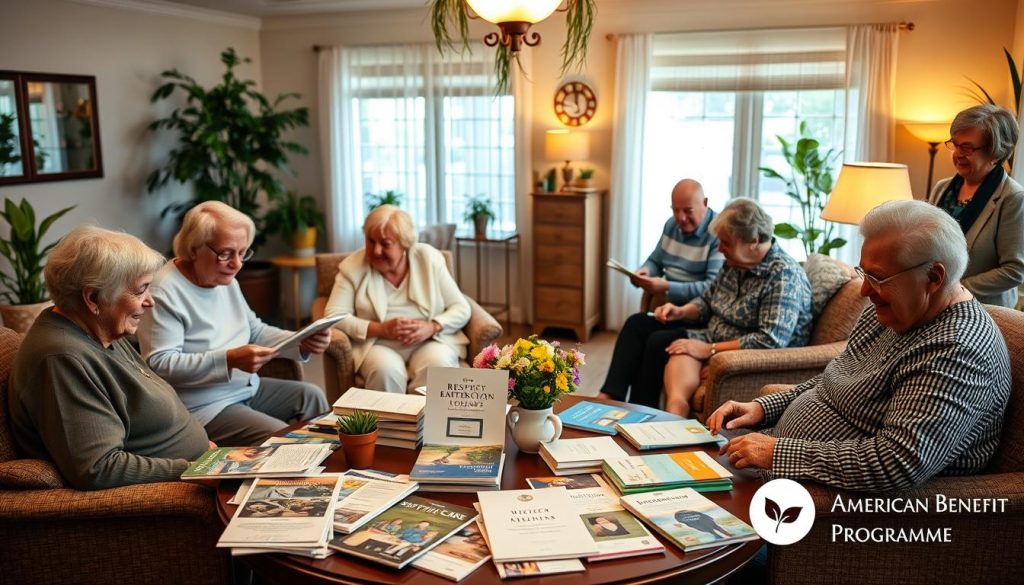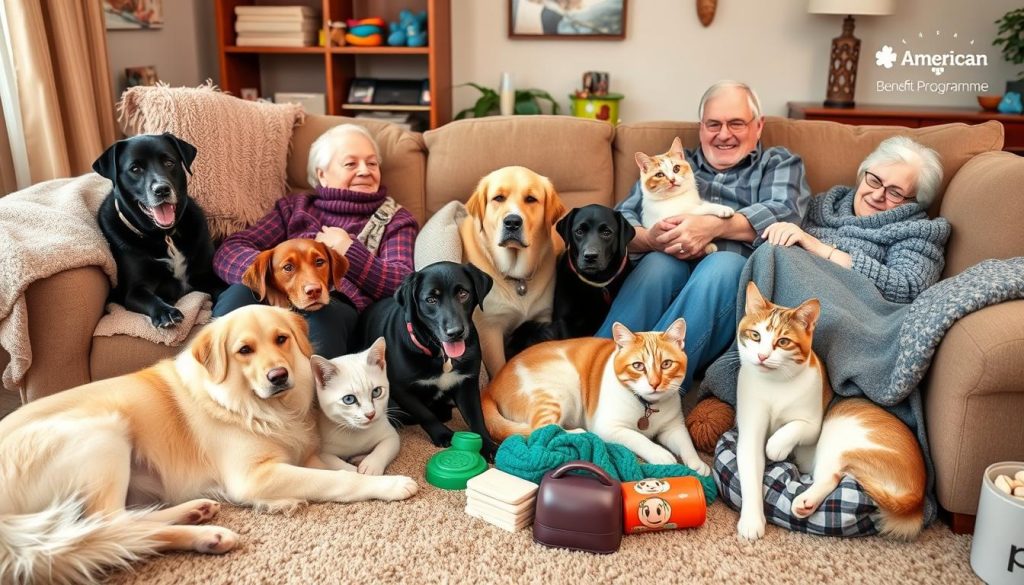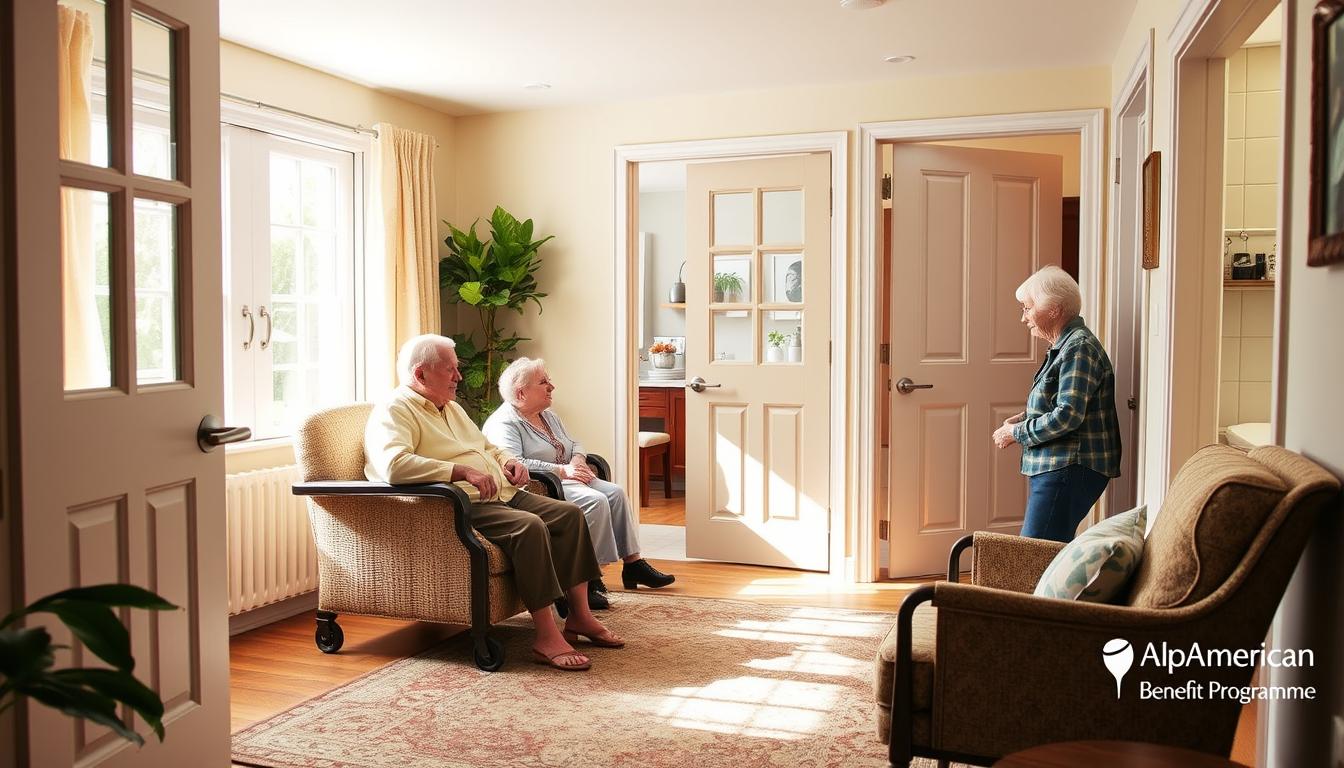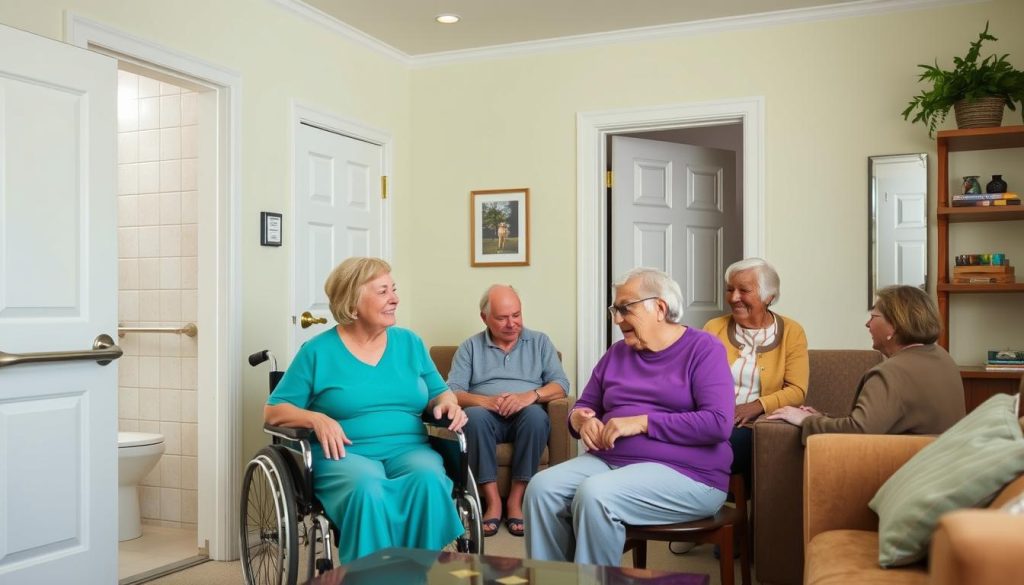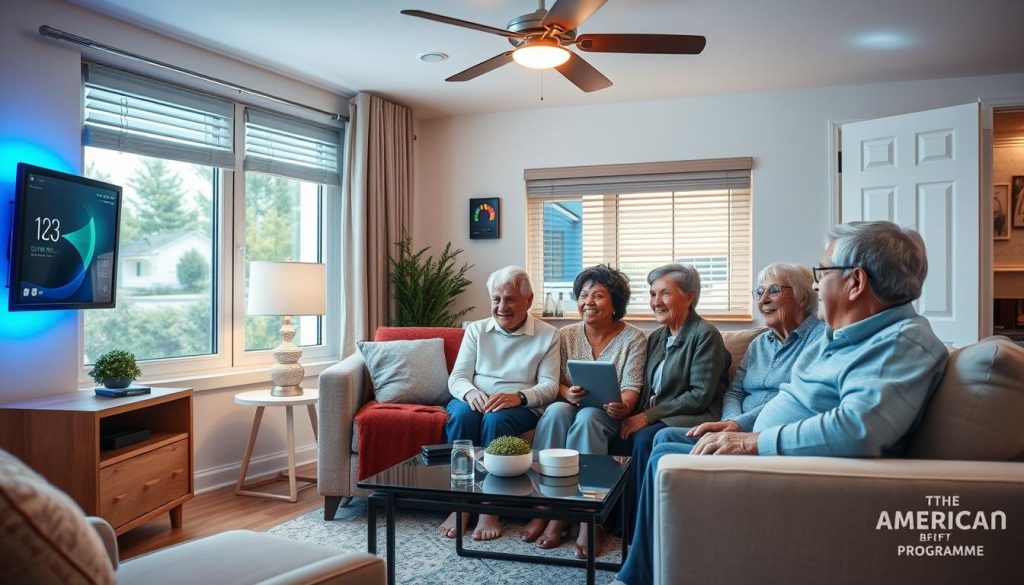Do you know your legal rights as a senior? It can be tough to understand elder law. Yet, knowing your senior legal rights is key for older people and their families. As we get older, having good legal help becomes very important. This helps with many legal issues, like planning your estate and spotting elder abuse. Knowing your rights is not just important, it also protects those who might be at risk.
This guide looks closely at important resources, common legal problems, and groups that help seniors. Protecting the legal rights of older adults is essential. It ensures they are treated with dignity and feel secure. Sadly, about 10% of older adults face elder abuse. This can range from harmful actions to stealing money. So, having the right legal support is very important12.
Understanding legal matters is key to staying safe and independent. This guide helps whether you need guidance on wills or protection from abuse. It gives you the tools and knowledge to fight for your rights.
Key Takeaways
- Understanding senior legal rights is essential for navigating elder law effectively.
- There are various legal issues that seniors frequently encounter, making access to legal assistance critical.
- Identifying elder abuse is vital, with many forms of abuse requiring immediate attention.
- Comprehensive estate planning can safeguard your assets and ensure your wishes are met.
- Advocacy groups and resources are available to assist seniors in understanding and asserting their rights.
The Importance of Legal Services for Seniors
Legal services are key for protecting the rights of older adults. They help seniors deal with tough issues that come with aging. As more people get older, the need for these services grows. This is because legal problems get more common. Seniors might find it hard to get legal help due to physical limits, being far away from services, or not knowing their rights. There are about 1,000 legal service providers funded by the OAA across the country. Together, they give almost one million hours of help every year3.
Reasons Why Seniors Need Legal Support
Seniors often need help with things like planning their estate, setting up guardianship, and making healthcare choices. Getting legal help lets seniors make wise decisions about their money and health. It also helps protect them from elder abuse. Lawyers help seniors by making wills and trusts, setting up powers of attorney, and dealing with healthcare directives4.
This kind of support greatly helps seniors live well and stay independent. It allows them to stay in their communities and make their own life choices3.
Overview of Common Legal Issues Faced by Seniors
Seniors often face legal problems like estate planning, getting public benefits, and guardianship issues. As people get older, the threat of elder abuse goes up. This shows why legal help is so important. Such help includes stopping wrong evictions, getting back money lost in scams, and fighting against unfair guardianship cases. These services help seniors keep their freedom and protect their belongings. They support their independence and their wish to age in their own homes43.
Understanding Senior Legal Rights
Older adults have special laws to keep them safe and respected. It’s important to know these rights as we get older. This knowledge helps seniors make good choices and stand up for themselves.
Key Legal Protections for Older Adults
The Older Americans Act helps provide affordable legal help. It tackles issues like estate plans which can cause family fights5. Seniors have the same rights to be treated well, no matter their background6. They should not face any abuse, which can be physical, emotional, financial, or sexual5.
In 2023, over 101,000 seniors reported being scammed7. Medicare and Medicaid rules can be confusing5. Knowing their rights lets seniors protect their privacy and money.
Advocacy Groups and Resources
There are groups that help seniors fight for their rights. The National Center on Elder Abuse is one of them. Legal Services Corporation gives free or cheap legal help tailored for seniors5. Pro bono services ensure poor seniors can get legal advice.
Groups like Pension Counseling help with pension or retirement issues5. These resources empower seniors to defend their rights and solve legal problems.
Essential Legal Documents for Seniors
It’s key for seniors to know about important legal papers. These help protect their legal rights and benefits. Documents also make it easier to make big decisions about health and money. An expert in elder law can tell what paperwork is needed to keep assets safe and ensure well-being.
Wills and Trusts: What You Need to Know
Wills and trusts are vital in planning for the future. A will says who gets your things after you die. This can help prevent family fights. A living trust handles your assets while you’re alive. It also says what happens to them after you pass.
These documents stop delays in care or insurance issues if key financial papers are missing. Research shows 94% of insurance benefits need medical records8. Keeping documents in one place is advised for easy access9.
Power of Attorney and Healthcare Directives
A durable power of attorney picks someone to decide for a senior when they can’t. Advance healthcare directives outline a senior’s medical care wishes if they’re incapacitated. This often includes a living will and a healthcare power of attorney8. It’s noted that about 72% of doctors may ask for these documents in the hospital9. These legal papers guide treatment choices in emergencies and help talk to doctors.
To sum up, dealing with key legal papers is crucial for seniors. Good organization involves keeping track of names, social security numbers, and family and finance info. It’s good to go over these plans with family to ease worries about healthcare and money matters8.
Estate Planning for Seniors
Estate planning is key for seniors’ financial safety. It makes sure assets go where they want. Nearly half of Americans over 55 don’t have a will. This shows many don’t plan ahead. Not planning can cause big problems and costs. Probate can eat up to 10% of an estate’s value. So, it’s crucial to plan early10. With many Americans being 65 or older, a solid estate plan is vital11.
Strategies for Asset Protection
Making a trust helps seniors a lot. It speeds up giving out assets and skips probate. Estate tax hits only if an estate is over $12.92 million. This info helps seniors protect their wealth10. They should keep assets safe and get the right medical care. This fits elder law11.
Creating a Comprehensive Estate Plan
An estate plan needs key documents like wills and trusts. Also, powers of attorney are a must. With dementia affecting 1 in 3 older adults, a health power of attorney is crucial. It helps with choices in tough times10. Plans should be reviewed often. This ensures they match current needs and wishes11.
| Aspect | Description |
|---|---|
| Will | A legal document outlining how assets will be distributed upon death. |
| Trust | An arrangement that allows one party to hold assets for the benefit of another, often bypassing probate. |
| Power of Attorney | A legal document allowing someone to make decisions on behalf of another person, particularly in health matters. |
| Healthcare Directive | A document that outlines a person’s wishes for medical treatment in case they cannot express them. |
Understanding these parts protects seniors’ rights. It also makes sure their financial future is looked after well1011.
Long-Term Care Planning
Planning for long-term care is key for older people and their families. It makes sure they have the health and financial help they need as things change. They need to know about big programs like Medicaid and Medicare. These provide support. Getting legal help can make it easier to find financial aid for those who need care.
Navigating Medicaid and Medicare Options
About 53 million adults in the U.S. are family caregivers. They look for information on Medicaid and Medicare to help their loved ones. These programs offer benefits for long-term care costs, but it can be hard to know if you qualify. Lawyers who know about elder law can help. They make it easier for seniors to plan and use these programs1213.
Understanding Financial Assistance Programs
There are many programs to help older adults pay for care. This includes help at home, in assisted living, and adult day care centers13. It’s also important to think about legal stuff. Things like who can make money and health care choices for you. Knowing your options can make life better for those needing care12.
| Type of Care | Service Description | Funding Source |
|---|---|---|
| In-home care | Support for daily activities in the comfort of home | Medicaid, personal savings |
| Assisted living | Residential care for individuals needing help with daily tasks | Private pay, Medicaid |
| Nursing homes | 24-hour skilled nursing care for complex medical needs | Medicaid, Medicare |
| Adult day care | Daytime supervision and assistance for older adults | Medicaid, private pay |
For more info on care planning, check out the sample page12.
Guardianship and Conservatorship
It’s important to know about guardianship and conservatorship to protect older folks. These steps make sure those who can’t take care of themselves get help. We will look at how these two legal ideas differ and why they matter for seniors who need someone else to manage their affairs.
Distinguishing Between Guardianship and Conservatorship
Although they aim to help, guardianship and conservatorship are not the same. Guardianship gives someone the right to make personal decisions for another, like where they live and their healthcare. On the other hand, conservatorship deals with someone’s money or property, helping those who, due to things like Alzheimer’s, can’t decide well on their own14. Lawyers who work with older adults often suggest looking into Powers of Attorney first. These can be a cheaper way to handle things if the person can still think clearly enough to agree to it15.
Establishing Legal Protection for Incapacitated Seniors
Starting a guardianship or conservatorship means going to court to show it’s needed for someone’s good16. For example, in New York, there’s a special way to set up guardianship spelled out in Article 81 of the Mental Hygiene Law. This makes sure the older person’s rights and best interests are looked after16. Getting advice from a lawyer who knows about elder rights can really help make these legal setups work best14.
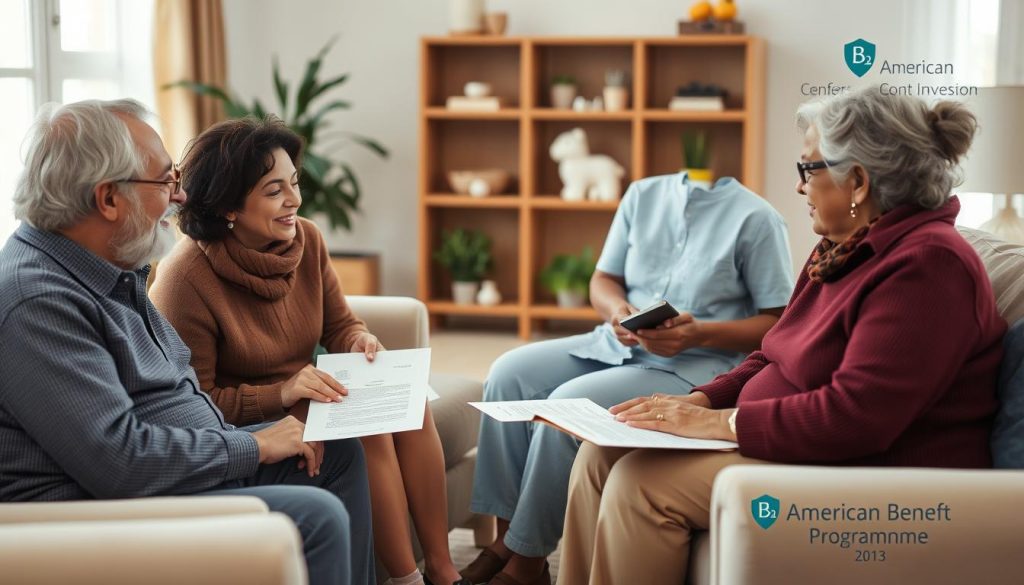
Identifying Elder Abuse and Neglect
Elder abuse is a big problem for seniors. It hurts their well-being and how they live. Knowing about different types of abuse helps protect them. Seeing the signs early helps stop the harm and get support, with help from those who fight for elder rights.
Common Signs of Elder Abuse
To spot elder abuse, look for certain clues. Some signs are:
- Unexplained injuries, such as bruises or fractures.
- Changes in behavior, like avoiding friends or sudden mood changes.
- Dirty living spaces that show neglect.
- Money issues, like missing cash or big changes in money matters.
Every year in the U.S., over half a million elder abuse cases are reported17. Often, family members are the abusers. This includes adult kids, spouses, or partners17. They might use a senior’s money without permission17. Not caring for them right is a common issue17.
How to Report Elder Abuse
If you think a senior is being abused, act fast. You should:
- Call local adult services or the police.
- Write down what you see, like in photos or notes.
- Help the elder to get support.
The Older Americans Act helps stop abuse for those 60 and up18. Laws like the Elder Justice Act make our response better18. It’s key to know these laws to help victims and supporters.
Legal Assistance Resources for Seniors
Seniors can get help with legal trouble from various sources. These sources are made just for their needs. Getting legal help is key for seniors without the money for private lawyers. An elder rights attorney is important. They make sure seniors’ rights are kept safe when dealing with the law.
Navigating Legal Aid Programs
Many groups give free or cheap legal help to seniors. Legal Counsel for the Elderly helps nearly 10,000 older people every year. They offer free legal and social work services in Washington, D.C19. Their Hotline gives free legal advice and help for those over 60. This includes help with Social Security and Supplemental Security Income19. In Dutchess County, AARP Legal Services gives a free first meeting. They also have lower prices for more legal help20.
Finding an Elder Rights Attorney
Getting a good elder rights attorney is helpful for seniors who need legal support. There are many places to find lawyers who know elder law well. For example, the Dutchess County Bar Association helps find lawyers by their specialty20. Also, Family Advocates, Inc. fights for the rights of those with disabilities, including seniors20. It’s very important for seniors to use these legal help resources well. This ensures they get the help they need with the law.
Financial Exploitation: Prevention and Remedies
Financial scams are a big risk for seniors. It’s important to know how scammers work. They use tricks like fake phone calls, bad investment offers, and phishing emails. This is to steal money or personal information. Knowing about these scams helps seniors and their families stay safe.
Common Scams Targeting Seniors
Many scams aim at older people by using their trust and fear. There are many scams out there, such as:
- Romance scams: Scammers make fake profiles online to form emotional bonds, then they ask for money.
- Investment fraud: Scammers lie about investment chances, making them seem safe with big returns.
- Tech support scams: Seniors may get calls from fake tech support and give away private info.
These scams can hurt both money and feelings. It’s key for seniors to doubt strange offers and know these scams.
Legal Steps to Take Against Financial Exploitation
If someone takes advantage of a senior, there are ways to fight back legally. Talking to a lawyer who knows about elder law is a good first step. They can help with the laws about protecting seniors. The Florida Adult Protective Services Act helps stop and fix abuse. It lets cops help in these cases21. There’s also a law for asking a court to protect a senior’s money22.
It’s important to understand the laws for charging someone with this crime21. Proving the senior couldn’t agree to the deal is key. Legal actions can protect seniors’ money and stop more scams from happening.
Click here for tips on keeping seniors safe from scams. Being informed helps prevent abuse and protects seniors’ rights.
Community Programs Supporting Senior Legal Rights
Community programs help seniors get legal help to protect their rights. They offer education, help, and legal services. This support helps seniors in many areas of life.
Long-Term Care Ombudsman Program
The Long-Term Care Ombudsman Program helps people in care homes. Ombudsmen fight for the rights of elders. They work on complaints to make sure seniors get good care.
This program helps with legal issues so seniors can speak up for themselves. It gets money from the Older Americans Act (OAA). This act makes sure every state has legal help for older people. It helps them stand up for their rights and be independent23.
Volunteer and Advocacy Programs
Volunteer and advocacy programs are key in supporting elder rights. Community members help seniors with legal problems. The Senior Legal Services Program is for low-income seniors. It deals with health issues or abuse.
They get legal advice and help on things like Medicaid. This ensures seniors get the help they need24. Also, grants from places like the New York Bar Foundation improve access to care services. They show why it’s important for the community to help protect elder rights25.
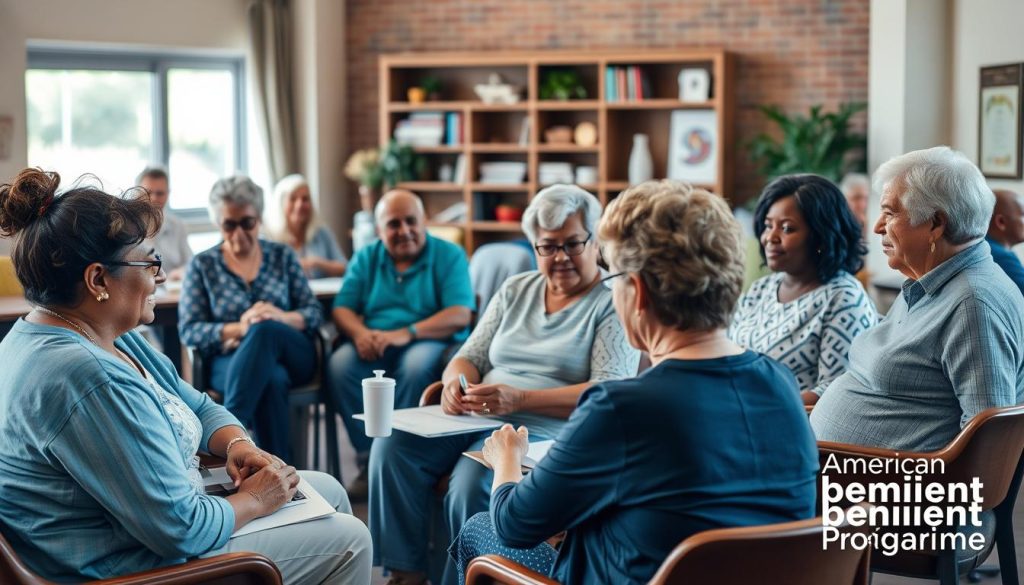
Conclusion
It’s very important to know and protect the legal rights of older people. Our guide talked about help for seniors, planning for the future, and spotting abuse. There are about 1.5 million older people with a guardian in the U.S. Many lose money to bad people. We need strong legal help and resources for our elders26.
Old people often get tricked, being 56 percent of scam targets27. Families and caregivers should find legal help to protect them.
We all must help keep older adults safe from legal troubles. Seniors and their families should use resources and know-how to live well and safe26. If we teach and stand up for them, our elders will have a better future.
Source Links
- Elder Rights
- Elder Abuse and Elder Financial Exploitation Statutes
- Legal Services for Older Americans Program
- Senior Legal Services in New York
- Legal Advice and Assistance for Seniors | What you Need to Know & Where to Find Assistance
- Senior Rights | Office of the Attorney General
- Elder Law | Senior Legal Services, Attorneys, Wills & More
- Getting Your Affairs in Order Checklist: Documents to Prepare for the Future
- Essential Legal Documents for Aging Parents
- A Guide to Estate Planning Basics for Seniors | SeniorLiving.org
- What Is the Difference Between Elder Law and Estate Planning?
- A Complete Guide To Senior Legal Services
- A Caregiver’s Guide to Long-Term Care Planning – The Senior Alliance
- Conservatorship – Elder Law Services of California
- Guardianship vs Conservatorship vs Power of Attorney (POA) for Elderly
- Conservatorships | California Courts | Self Help Guide
- Elder Abuse and Neglect – HelpGuide.org
- NCEA | Law and Policy
- Legal Counsel for the Elderly, Free Services
- Legal Services for Seniors
- Protecting the Elderly from Financial Exploitation: The Dilemma and Solution, Part II
- The Legal Tool We Use To Stop Financial Exploitation Of Vulnerable Adults: Asset Freeze. – The Miller Elder Law Firm
- Legal Assistance | ACL Administration for Community Living
- Senior Legal Services – Legal Aid Society of Northeastern New York
- Evelyn Frank Legal Resources – New York Legal Assistance Group
- How the Elderly Lose Their Rights
- Seniors Legal Rights
